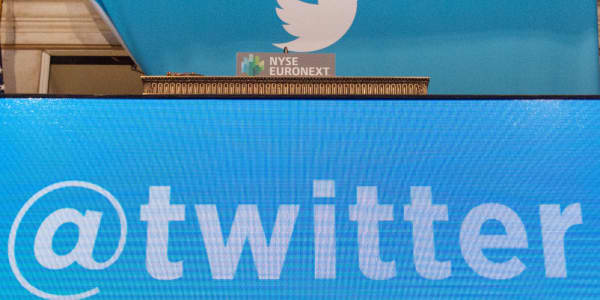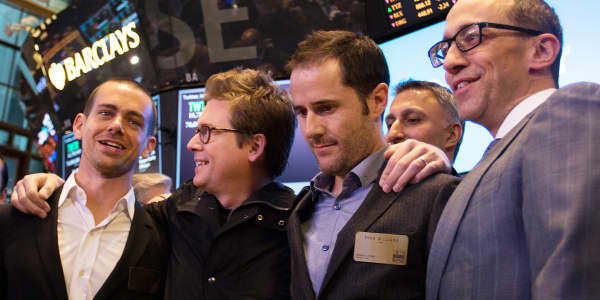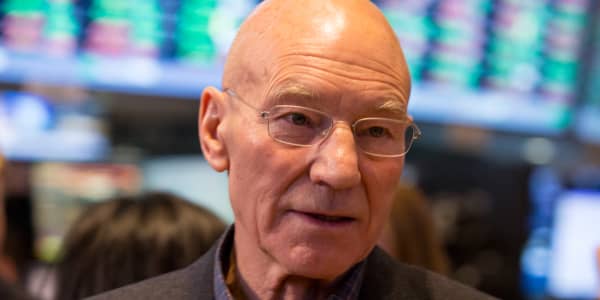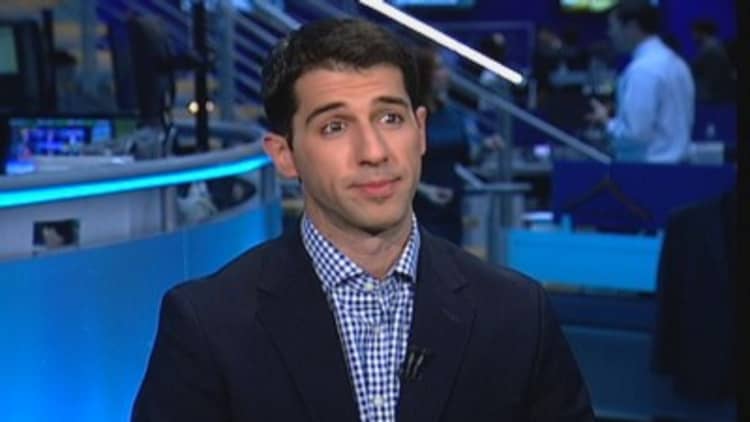
The financial community will be watching whether the so-called smart money invests in Twitter's initial public offering.
Anecdotal evidence suggests some larger hedge funds are at least showing interest. Representatives of Dan Loeb's $14 billion Third Point and multi-billion-dollar family office Soros Fund Management took meetings with Twitter executives in New York City last week, though it's unclear if either put in for a stake, according to people with knowledge of the meetings. And Samlyn Capital, a hedge fund that managed about $3.4 billion as of July, was among the firms requesting to invest in the new stock, according to a CNBC source. All three firms either declined to comment or did not respond to a request.
An early indication of that interest is that Twitter's underwriters priced the stock above initial estimates of $23 to $25 per share at $26.
(Read more: Twitter IPO pricesat $26 per share, above estimates: source)
Smaller hedge funds offered a spectrum of smart money opinions on Twitter.
Some are likely to buy the stock right away when trading begins, barring an unexpected valuation. But others are avoiding Twitter, either because they don't believe in its business generally, or at least initially because they want to let the day traders and other fast money work its way in and out of the stock during the initial flurry of activity.
Will Graves, chief investment officer of technology, media and telecom-focused hedge fund firm Boardman Bay Capital Management, is one investor likely to buy.
"Boardman Bay is interested in the TWTR offering, like most of Wall Street," Graves said. "An indication of the demand is that we have been approached by global macro funds and others that seek an understanding of TWTR and the opportunity—this is not the core-strategy of these funds, and thus it's obvious that many are playing this offering, maybe some just for sport."
"Our basic take is this is a buy at the IPO, and most institutional investors agree," added another hedge fund manager, who requested anonymity.
The person said Twitter could trade up to $36 a share, or about $25 billion enterprise value on 18 times consensus 2015 revenue. "Our numbers are about 25 percent ahead of consensus for 2015 and that's probably still too conservative," the manager said.
(Read more: What #TwitterIPO says about stocks may be a bunch of bulls)
Others are interested, depending on price.
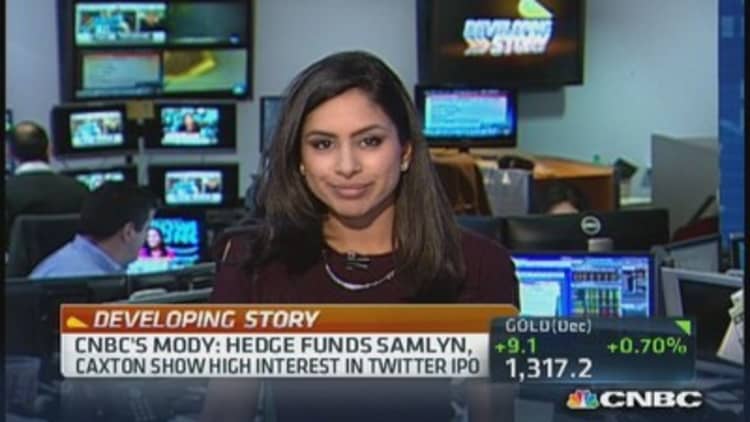
"I may buy Twitter on the open depending on where it is. I wouldn't pay more than a $20 billion valuation because I think that discounts 2015 results pretty fully," another small hedge fund manager said.
"Twitter is well positioned with something like 65 percent to 70 percent of revenue coming from mobile already—and their product is tailored for mobile usage even if that was the original vision behind the 140-character constraint," the manager said. "For that reason alone Wall Street will love it—they want mobile Internet."
Other hedge funds aren't convinced.
"I am not looking at the Twitter IPO, since there seems to be way too much hype and media attention," Svetlana Lee, the portfolio manager at $66 million equity-focused hedge fund firm Varna Capital. "I tend to prefer under-the-radar-screen, misunderstood or unloved opportunities."
Another is Rob Romero, the portfolio manager for $120 million Connective Capital Management.
"We are not planning to invest. At the current valuation, the revenue model is not yet established enough, and their reach and frequency from an advertiser perspective is not as uniform as Facebook, particularly in the U.S. where monetization is much more established," Romero said. "Twitter users are typically enthusiasts looking for short nuggets of news. Facebook engagement is deeper and broader."
Many are basing their Twitter case—either way—on previous social network IPOs.
Graves, who is up an estimated 52 percent net of fees this year through October in Boardman Bay's flagship fund, said he prefers this IPO to Facebook's.
"Twitter is most likely an initially better investment opportunity than Facebook—the deal is cleaner, there is less retail investor exposure, management has been more prudent in their pricing and sizing and, importantly, the exchanges should be prepared this time around," he said.
Added another bearish manager: "Another way of saying this is it could be worth as much asLinkedIn? The big difference here is that Twitter's margins aren't great and are never projected to be amazing—Facebook clearly has a better business."
Lee of Varna said she prefers to wait on Twitter, as she did with Groupon: "I did invest in Groupon in May of 2013, but that was long after its IPO when the stock was pricing in a lot of pessimism and the market was ignoring the change in Groupon's business model," she said. "At the time, the stock was all but left for dead and the market was assuming it was still a coupon spam e-mail business, whereas the company was successfully transforming itself into a local transaction platform."
The largest technology-focused hedge funds—including Steve Mandel's $9.2 billion Lone Pine Capital, Philippe Laffont's $7 billion Coatue Capital and Chase Coleman's $6.2 billion Tiger Global Management—declined or didn't respond to requests for comment. Nor did employees of the banks leading the IPO, including Goldman Sachs, Morgan Stanley and JPMorgan Chase.
What other big money investors do remains to be seen. David Einhorn of $9.7 billion Greenlight Capital and Carl Icahn of $31 billion Icahn Enterprises didn't respond to a tweet to their handles requesting comment.
—By CNBC's Lawrence Delevingne. Follow him on Twitter @ldelevingne. CNBC's Seema Mody and Kayla Tausche contributed reporting.



